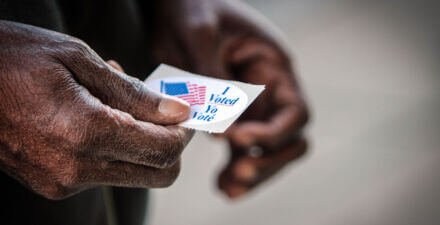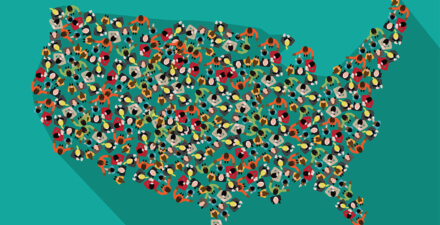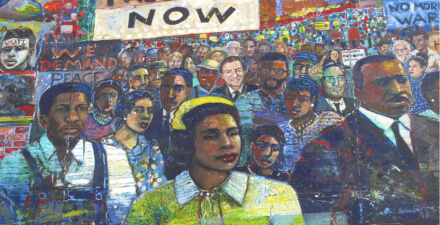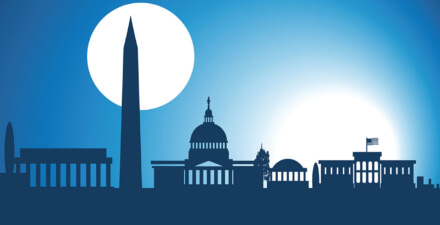Overview
Economic analysis that does not account for political power—who has it and how it is wielded—will inevitably fail to fully capture what keeps the United States from achieving equitable economic growth. Those who enjoy market power are, not coincidentally, often the same citizens who enjoy outsized political influence, creating a feedback loop that perpetuates economic inequality, instability, and slow growth. This report examines cutting-edge research on how economic and racial inequality interact around the country among those Americans who vote, those who try to vote but face obstacles in doing so, and those who do not vote altogether. The evidence-based research we explore pinpoints the myriad ways that economic and racial inequality together subvert our democracy by aiding and abetting political inequality and voter suppression.
Key Takeaways
Problem
- Voter suppression and bureaucratic barriers make voting in the United States harder than in most other developed nations, disenfranchising millions of Americans.
- As a result, higher-income citizens of the United States are more likely to vote than their lower-income counterparts. This disparity is exacerbated because lower-income Americans are less likely to get paid time off from work, more regularly move their places of residence, are incarcerated at higher rates, and are more likely to face unstable transportation and child care arrangements.
- Structural racism—both in the way elections are administered to purposely disenfranchise Americans of color and in the systems of oppression and stratification that exist in other U.S. institutions, such as the criminal justice system and labor market—compounds these problems and further limits access to the ballot box for Black Americans, Latinx Americans, Indigenous Americans, and other Americans of color. Specifically:
- There are several voter suppression tactics that target communities of color, including felon disenfranchisement (sometimes including those who owe nominal fines and fees to the government), overzealous and partisan purges of voter rolls, underresourcing or closing certain polling places, and restricting access to early or mail-in voting.
- Likewise, there are voter suppression tactics that target neighborhoods with larger shares of residents of color; a recent paper finds that residents of Black neighborhoods waited in line at the polls 29 percent longer than those residing in White neighborhoods and Black Americans were 74 percent more likely to spend more than 30 minutes at their polling place.
- Given the important role political power plays in setting the rules governing the U.S. economic system, electoral inequality is one major source of income and wealth inequality. Elected officials are only truly accountable to those Americans who vote, so an electorate that skews richer and Whiter than the country overall inevitably results in policymakers who are more responsive to the concerns and interests of already-privileged citizens, a phenomenon borne out by academic evidence. Specifically:
- Recent cutting-edge research demonstrates that, by reducing discrimination against Black Americans at the polls, the Voting Rights Act of 1965 reduced the Black-White wage divide—and, conversely, that the recent judicial decision to rescind major parts of that Act exacerbated racial economic inequality.
- Similarly, a number of studies find a causal link between more egalitarian voting rates (smaller discrepancies in the rate of voter turnout between low- and high-income citizens) and more generous state income-support programs, higher minimum wages, and less income inequality.
- There also is academic evidence of causation going in the opposite direction because as the economy gets more unequal and is increasingly seen as “rigged” by disillusioned citizens, turnout lags, especially among lower income communities, exacerbating political inequality.
Solutions
- To break this dangerous cycle, policymakers should consider reforms to the country’s voting system that have been proven to equalize access to the polls and will ensure the electorate is truly representative of our country’s economic and racial diversity. Specifically, they can:
- Ease voter registration requirements, potentially even making them automatic
- Enact same-day voter registration in all states consistent with those states that lead the nation in voter participation, where average turnout was more than 10 percentage points higher than in other states in 2012
- Restore voting rights to those with felony convictions, reduce wait times, guarantee paid time off for voting, and reestablish federal oversight through a restored Voting Rights Act
- The measures taken by some jurisdictions to ensure a full and fair election in 2020, including the expanded use of vote by mail and ballot drop boxes, should be studied by researchers to learn what works to reduce income and racial biases in election participation.
Related
Explore the Equitable Growth network of experts around the country and get answers to today's most pressing questions!






